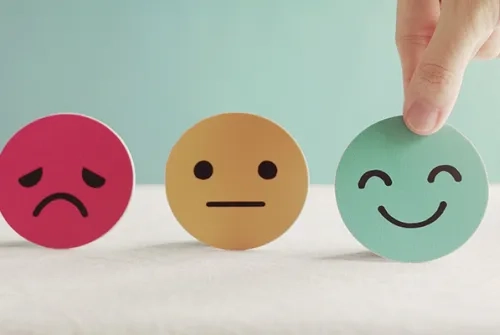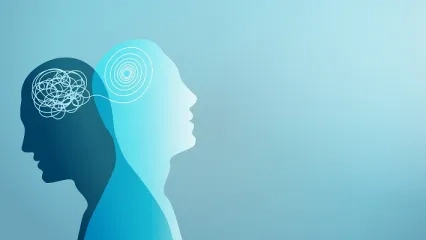Alo Yeditepe
Alo Yeditepe
Post-Traumatic Stress Disorder
In recent times, psychological resilience has been a widely discussed topic due to natural disasters and other traumatic events. What can we do to increase our psychological resilience and cope with negative emotions, thoughts, and traumas? Yeditepe University Hospitals' Psychiatry Specialist, Assoc. Prof. Dr. Hakan Atalay emphasizes the importance of knowledge, self-awareness, sharing experiences and information in increasing our psychological resilience. He also discusses the impact of traumatic events on individual and societal psychology.
What is Trauma?
All systems, living or non-living, are based on a balance. The most important balance factor is the sustainability of various parameters that keep our body alive. When this balance starts to be disrupted, pathological events occur. These events can be physical or psychological because our body and mind are developed to keep us in balance. The occurrence of events that will disrupt this balance is called trauma or stress.
In fact, all psychiatric or mental problems are rooted in trauma. Many events that we cannot remember from our childhood can still shape our psychological structure as trauma. That is why, even if we do not talk about major traumas, traumas are a part of our life. Most of the time, despite these traumas, we can still continue our normal lives.
In psychiatry, not every experience or event is considered as trauma. For an event to be considered traumatic, it must involve a real death, death threat, serious injury, or sexual violence. This traumatic event can occur directly or can be witnessed by the person. It can also be considered as trauma when a person learns that a close family member or friend has experienced a traumatic event or when a person experiences the event repeatedly in an extreme way. People who experience constant trauma, such as those who collect evidence at the scene of an event or police officers dealing with child abuse cases, can also be used as an example. On the other hand, being exposed to such events through electronic media, television, cinema, or pictures is not considered as trauma.
If the source of trauma or stress is other people and deliberately caused, the trauma will be so severe, so intense, and so long-lasting. From this perspective, of course, natural disasters seem to be more acceptable. Although it is difficult, traumas caused by human actions can be considered as easier to cope with than traumas caused by nature.
What are the Types of Trauma?
Everyone's balance can be disrupted in various ways. We struggle to cope with trauma or stress, have difficulty dealing with the event, and want to return to our previous state of balance. When we cannot do this, several disorders may arise. These include "Post-Traumatic Stress Disorder" "Acute Stress Disorder" and "Adjustment Disorder"
What is Post-Traumatic Stress Disorder?
Post-Traumatic Stress Disorder (PTSD) refers to a set of symptoms that develop after experiencing a traumatic event. The individual may experience intrusive symptoms, which involve thoughts or memories that are distressing and difficult to control. The traumatic event may appear in dreams or be recalled involuntarily through flashbacks triggered by a particular stimulus. Avoidance behaviors are also common, whereby the individual avoids reminders of the traumatic event, such as conversations or places associated with it. Changes in mood may also occur, such as feeling numb or developing negative beliefs about oneself or others. The individual may experience fear, guilt, shame, anger, or other negative emotions. As a result, the individual may lose interest in activities they once enjoyed, withdraw from others, and feel disconnected from positive emotions such as happiness or love. They may become easily agitated, irritable, or have difficulty sleeping or concentrating. These symptoms may persist for at least one month and significantly impact the individual's daily functioning. If the symptoms are not explained by another medical condition or substance use and persist beyond one month, the diagnosis of PTSD may be considered. It is important to note that PTSD may develop immediately after a traumatic event or months later.
What is Acute Stress Disorder?
Acute stress disorder is actually the initial phase of post-traumatic stress disorder (PTSD) and includes symptoms of trauma-related stress. In other words, if a person shows signs of trauma within the first three days to one month after an event, then a diagnosis of acute stress disorder can be made. However, if the duration of symptoms extends beyond one month, then these symptoms suggest PTSD.
When Does Trauma Lead to “Post-Traumatic Stress Disorder”?
The first risk factor is previous traumas. When exposed to trauma, the tendency to externalize and perceive problems as coming from outside also increases the risk. Anxiety or anxiety disorders, panic attacks, depressive disorders, and OCD (obsessive-compulsive disorder) can be considered as risky factors before trauma. In addition, low socioeconomic levels, unwanted events in childhood, economic deprivation, dysfunctional family functioning, parental separation, death, cultural characteristics, self-blaming coping strategies, intelligence level, and family psychiatric history can also increase the risk. However, the higher the social support received before the incident, the more protective it will be. It should not be forgotten that being a woman and young also have a significant impact among risk factors. Post-traumatic stress disorder may be more common in women and young people. In some genetic structures, genetics can also provide a protective function. When looking at risk factors during trauma, the most important factor is, of course, the magnitude and severity of the trauma. Because the greater the trauma, the higher the risk of developing post-traumatic stress disorder. The higher the wave of threat to life, the higher the risk of illness.
How is Post-Traumatic Stress Disorder treated?
First of all, it is important to acknowledge that all the recent events have triggered normal reactions to an extraordinary situation. It is important to give people time to develop coping skills. It is not necessary to view everything as a disease. However, if these symptoms persist and start to affect one's work, daily life, and health, then psychiatric or psychological support may be necessary. There are two options available: psychotherapy or medication. Generally, it is best to avoid pharmacological interventions because sometimes it may be necessary to experience and resolve the events for an extended period. There are therapeutic methods that focus on a person's thoughts and attempt to correct misunderstandings and incorrect beliefs about the event. These therapies can be individual or group therapy. Group psychotherapy can facilitate healing, especially after a traumatic event, by providing a shared experience for participants. If these methods are not sufficient, and it appears that a person will not recover with psychotherapy alone, then pharmacological treatments can also be used.
What Should We Do To Cope With What We Feel During Stress Disorder?
It is difficult to know in advance how everyone can cope with the feelings that come with stress disorder. Therefore, it is important to trust people's coping skills to some extent. Of course, everyone will experience grief, loss, and pain. Nobody can force anyone to heal. None of us can sleep properly. We do not feel comfortable, we are anxious, and we are on edge. We are in pain; we feel like crying if someone touches us. Many of us are living like this. But everything is still very fresh. We need to wait a little bit. But we will slowly heal over time. This will not happen by forcing ourselves or doing something we need to do. If there are people who need support, we should all support them together.
How can we come out of this with minimal damage? Is it normal to be this broken?
This is not a very common situation, and everyone would react similarly. These are actually normal reactions as human beings. Our most important motivation as humans is to survive. What enables us to do that? Eating, drinking, having a safe place to stay, and being with other people. These are very basic needs, and seeing that they may not be available, that everything can change overnight, that our home, friends, life, and loved ones can disappear, disrupts the entire system, which is very normal. Thinking that this danger is also close to us is a traumatic situation for everyone. Therefore, sleep problems, eating and drinking problems, and feeling guilty are all very normal. We need to learn how to cope with this while not ignoring the fact that life is like this.
What are the Points to Consider While Overcoming the Stress Disorder Period?
It is important to have more knowledge about what to expect and take some precautions when recovering from a stress disorder. The most important thing is to take better care of ourselves and protect us from certain things. We are in a period where it is asked whether we should return to our routines or not. Of course, we should return. The sooner we return to normal life, the easier it will be to recover. When we think about the mourning process after losing someone we love, we feel very sad, but life goes on. If life did not go on, we would become extinct as a species. Therefore, we will mourn, suffer, but we will see it as normal without normalizing it. And in order to cope, we will protect ourselves.
For example, if we constantly watch the news, constantly encounter trauma, or are exposed to trauma, recovery will not be possible. Of course, we need to stay informed and be aware, but this period should also be limited. Individuals should also do other things, not neglect their daily work, do their job, take time for themselves, and provide support. They should also take time to support others and not overlook the healing power of helping and supporting others. We should divide our lives and not live solely focused on one thing.
This content was prepared by Yeditepe University Hospitals Medical Editorial Board.
Alo Yeditepe


